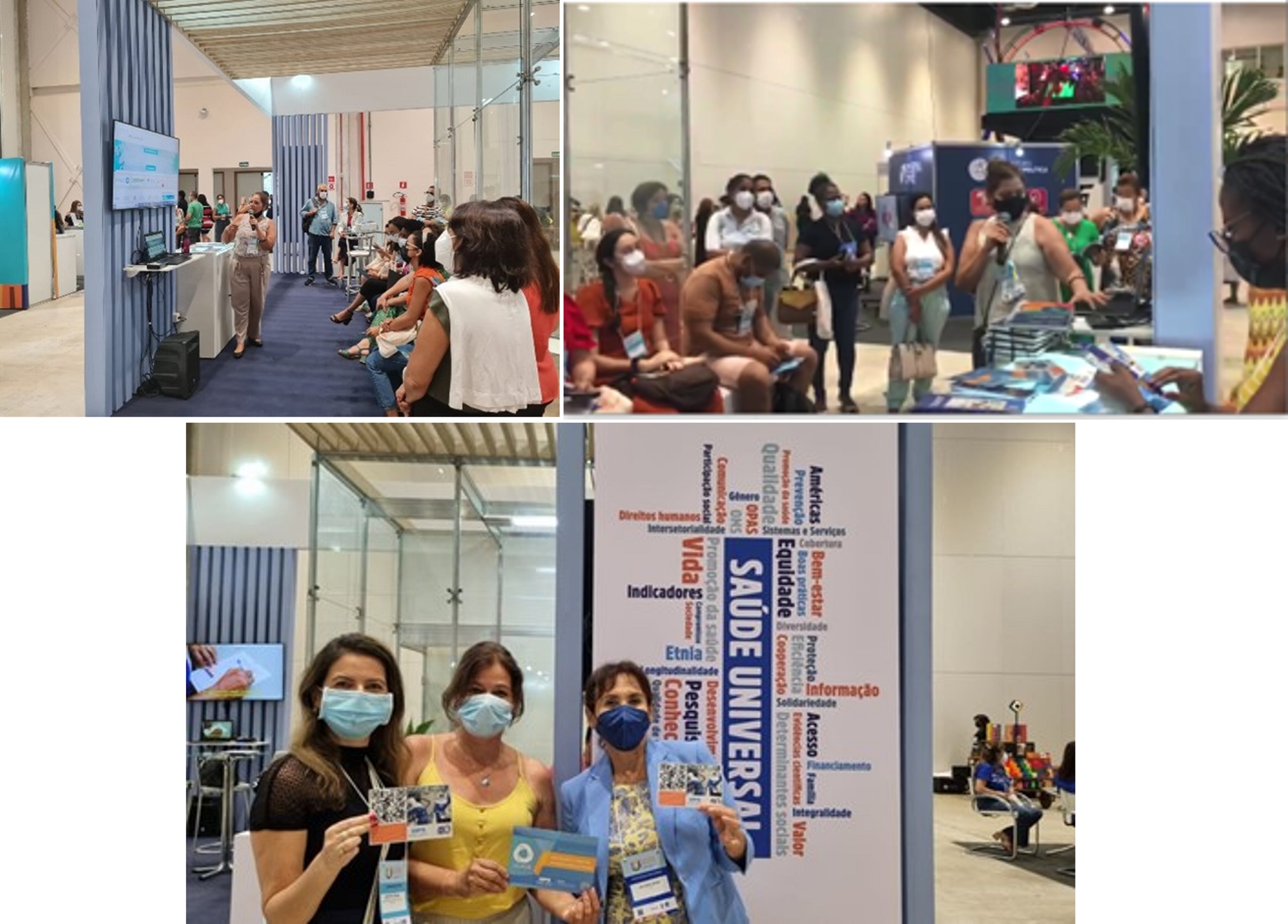In 2022, the 13th Brazilian Congress of Collective Health (in Portuguese), organized by the Brazilian Association of Collective Health – ABRASCO, had the theme ‘Health is democracy: diversity, equity and social justice’ and was held in Salvador, Bahia, on November 19-24, 2022.
PAHO participated in the program of the 13th Abrasco Congress in panels, debates, and round tables. Among the topics addressed throughout the program are the strengthening of health systems; social participation in health in Latin America; training models and work management, among others.
The event was supported by the PAHO/WHO Office in Brazil and BIREME, which participated in its booth, serving as a focal point for the promotion of its products and services, publications by PAHO’s technical areas and book launches from the Organization. This is one of the most important congresses in public health in Brazil. In a challenging moment, marked by the consequences of the covid-19 pandemic on public health, the event proposed and organized debates that stimulate reflections and proposals that can be incorporated into the Health, Education, and Science and Technology agenda of the next governments, at the Federal and State levels to contribute to the reconstruction and redirection of relevant and strategic public policies for the country. The event brought together more than 5,000 professionals, including managers, researchers, public health professionals and students, and indigenous leaders, among others.

In this context, the promotion activity carried out by BIREME at the PAHO Brazil booth, the supervisor of the Customer Services area, librarian Rosemeire Pinto, provided an overview and communicated about the health information sources that support the access and use of scientific evidence for the formulation and implementation of health policies. The diversity and number of participants in the event allow for reaching an audience that does not know the Virtual Health Library (VHL) and its resources. This interaction is rewarding and effective, according to Rosemeire, as it promotes exchange and mutual learning. Participation also favors meeting with users who are at the edge of health systems and services, to listen to their needs and demands in terms of access to information. Another positive point is the contact with potential collaborators, either for the networks coordinated by BIREME or professionals interested in developing projects with the Organization.
The agenda of activities included four daily mini-courses, prioritizing the event breaks, and dozens of individual sessions, or those in small groups, to answer questions about research methodology, access to courses and databases, publication of articles, etc. The content highlighted in the information sources focused on the SDG3 targets in addition to other topics that make up the 2030 Agenda and COVID-19, such as EVID@Easy, Windows of Knowledge, Evidence Maps and specialized databases in addition to the EVIPNet Brazil Portal (in Portuguese) and materials intended to assist decision makers.
It is worth highlighting the Magna Conference “Health is democracy: diversity, equity and social justice” delivered on November 21 by Dr Jarbas Barbosa da Silva Jr, Director-Elect of the Pan American Health Organization. Dr Jarbas Barbosa drew attention to the need for countries to be prepared to face other health emergencies similar to COVID-19. According to him, one of the fundamental elements to be incorporated in this preparation is the guarantee of equitable access. “We will never be well-prepared if developing countries have to struggle to gain access to masks, gloves, respirators, vaccines, and medicines,” he added. In his view, equitable access involves the qualification of human resources, the strengthening of Primary Care, and investment in innovative platforms that can make the region more prepared with the production of vaccines, medicines, personal protective equipment, and other health products.

PAHO was honored by Abrasco in recognition of its 120 years of history. The honor was delivered to the Representative of PAHO/WHO in Brazil, Dr. Socorro Gross.
Photo credits: